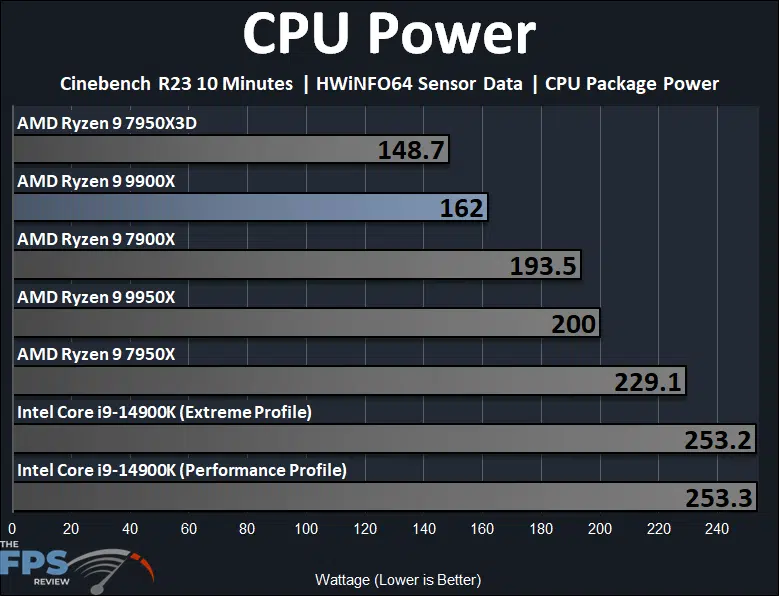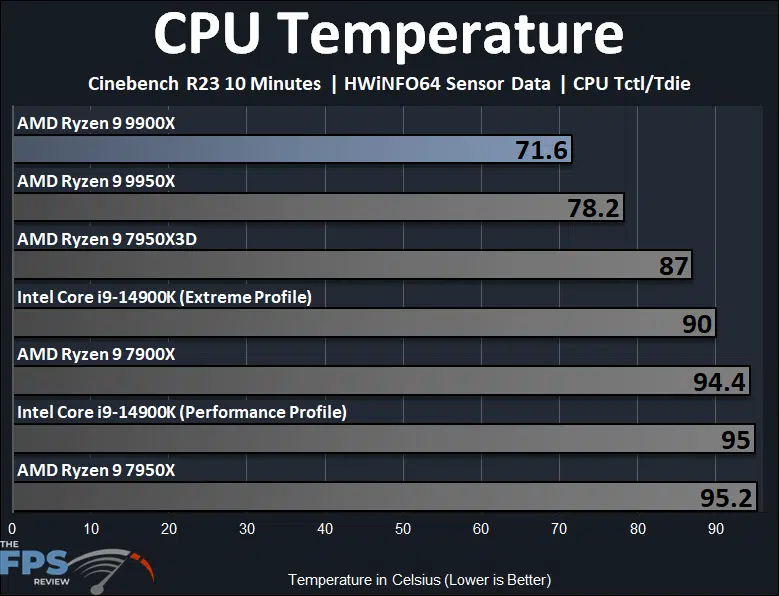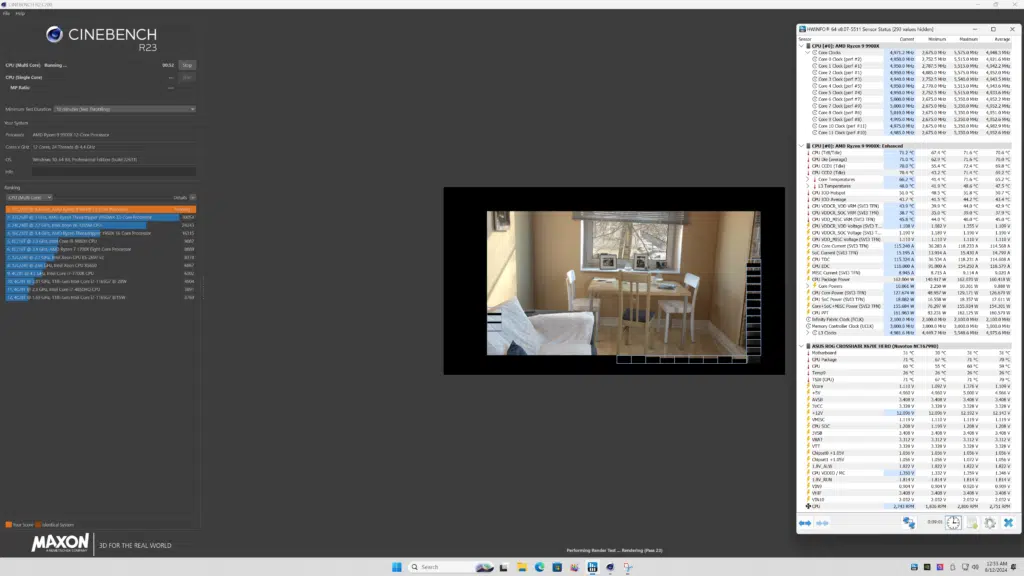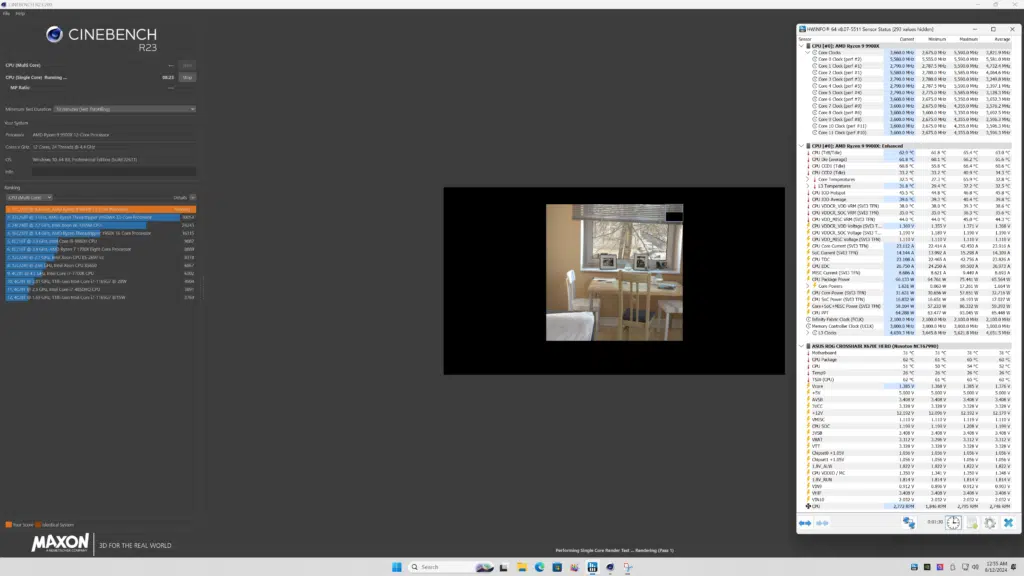Power Temperature and Frequency
On this page, we are going to investigate the AMD Ryzen 9 9900X power draw, temperature, and frequency. This is a stress test, which means we are pushing each CPU to its maximum potential in all-core load in the Cinebench R23 multi-core test for 10 minutes.
Power
We use HWiNFO64 sensor data to record the results. We report on the sensor data for “Package Power” in Wattage.

The AMD Ryzen 9 9900X is a 120W TDP CPU but has a PPT (socket power) of 162W. This is down, or lower, than the previous generation Ryzen 9 7900X which is a 170W TDP CPU with a PPT of 230W. This is, however, higher than the Ryzen 9 7900 which is a 65W TDP CPU with a PPT of 88W, so the closest comparison for the new AMD Ryzen 9 9900X is still the Ryzen 9 7900X.
In our graph, we can see that the AMD Ryzen 9 9900X is hitting its PPT of exactly 162W as advertised. At this power level, it is drawing 16% less power compared to the previous generation Ryzen 9 7900X which was pulling 193.5W in our testing. This indicates the AMD Ryzen 9 9900X is more efficient than the Ryzen 9 7900X in multi-thread and single-core testing performance, which was higher, except for gaming where it was the same. The AMD Ryzen 9 9900X draws 19% less power than the Ryzen 9 9950X. Compared to the Intel Core i9-14900K the AMD Ryzen 9 9900X draws 36% less power.
Temperature
We use HWiNFO64 sensor data to record the results. We report on the sensor data for “Tcidle” in Celsius.

Note that the same AIO was used for all temperature testing, an MSI MEG Coreliquid S360 360mm AIO. The AMD Ryzen 9 9900X runs very cool at just 71.6c. This makes it 24% cooler than the previous generation Ryzen 9 7900X. It also makes it just as cool compared to the Intel Core i9-14900K. It also runs 8% cooler than the Ryzen 9 9950X.
Frequency

The AMD Ryzen 9 9900X has a base clock of 4.4GHz and a boost clock of up to 5.6GHz. In our testing of Cinebench R23 for 10 minutes we experienced all of the cores running at 4.915GHz-4.99GHz, but mostly around 4.95GHz when all the cores were running at once. This is a lower frequency compared to the previous generation Ryzen 9 7900X where we experienced all of the cores running at 5.125GHz-5.175GHz at all times. This is therefore a reduction in clock frequency. Perhaps the higher power draw and temperature allow the Ryzen 9 7900X to clock higher in an all-core load. The fact remains, the AMD Ryzen 9 9900X runs slightly slower when all cores are utilized.

On a single-core workload, we experienced a maximum boost clock of up to 5.585-5.590GHz. We saw a maximum of 5.59GHz briefly, but never exactly 5.6GHz (or higher) which the CPU claims to be able to boost up to. Sometimes we see the boost clocks on these CPUs slightly exceed the maximum, but on the AMD Ryzen 9 9900X it did not, 5.85GHz seemed to be the average on the maximum single-core boost.
